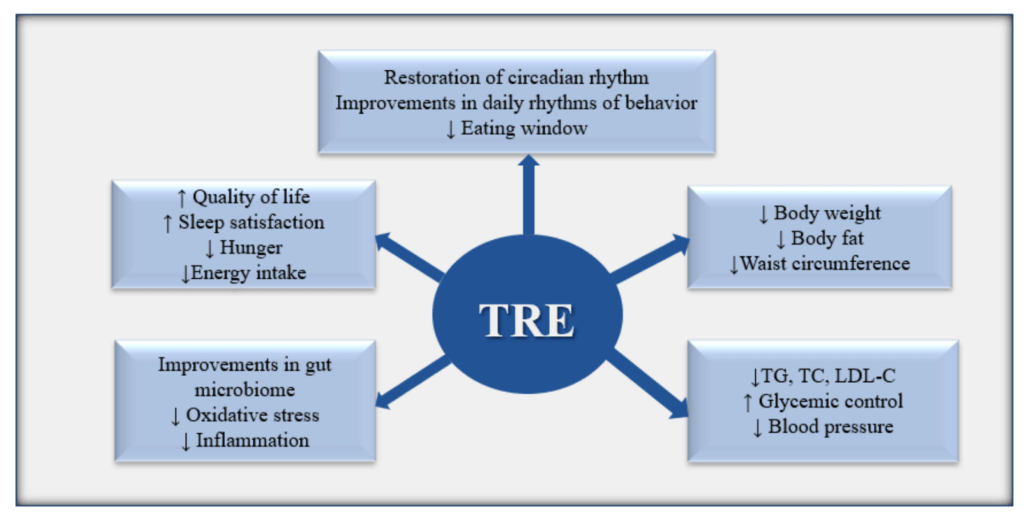BIO-STREAMS is pleased to announce the publication of a new study titled “The Effect of Time-Restricted Eating on Cardiometabolic Risk Factors: A Systematic Review and Meta-Analysis” in the journal Nutrients, in collaboration with our partner, the National and Kapodistrian University of Athens (NKUA).
This study examines the impact of time-restricted eating (TRE) on body weight, body composition, and cardiometabolic risk factors by reviewing clinical studies from PubMed and Cochrane libraries. These studies compared TRE with regular eating patterns that do not restrict calories. Findings show that individuals practicing TRE experienced notable reductions in body weight, body mass index (BMI), waist circumference, and whole-body fat mass. Additionally, there were improvements in cardiometabolic indicators, such as reductions in insulin levels, total cholesterol, and LDL cholesterol.
These benefits may be linked to our bodies’ natural 24-hour cycle, known as the circadian rhythm, which aligns with day and night as the Earth rotates. This rhythm regulates various bodily functions, including metabolism, by responding to external cues like light and meal timing. Research over recent decades has shown that most living organisms have evolved to follow this cycle, using internal “clocks” to help maintain balanced bodily functions. By aligning eating patterns with this natural rhythm, TRE may support healthier metabolic outcomes.
TRE, an eating pattern where meals are limited to a specific daily window (typically 4 to 12 hours, followed by a 12 to 20-hour fasting period), has been shown in animal and human studies to help prevent or reduce the severity of metabolic issues such as obesity, glucose intolerance, fatty liver (hepatic steatosis), high cholesterol, and age-related heart decline. TRE does not require calorie counting; by narrowing eating hours, total daily calories intake naturally decreases by approximately 350–500 calories.
Disruptions to this circadian rhythm, such as irregular sleep or eating patterns, can negatively affect metabolism, leading to issues like insulin resistance, high cholesterol (dyslipidemia), and elevated blood sugar (hyperglycemia). Aligning meal times with our circadian rhythm can help restore metabolic balance, promoting better overall health.

It is important to recognise the need for additional clinical studies involving a diverse range of participants, including children and adolescents, as well as longer intervention durations.
To access the full publication and learn more about the studies examined and their results, click here: https://doi.org/10.3390/nu16213700.
